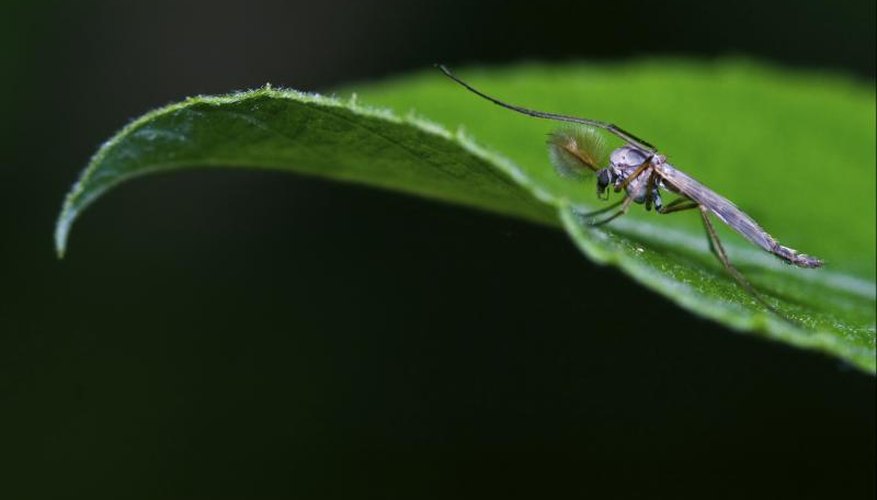
Midges are a large group of biting and non-biting insects that inhabit areas throughout the world, including North America, Australia and Europe. Typically much smaller than mosquitoes, biting midges have chemicals in their saliva that can cause itching and allergic reactions, creating problems for campers, fishermen and anyone who enjoys spending time in the outdoors. Several natural substances and homemade remedies may offer relief from midge bites.
Natural Repellents
Several essential oils, including lavender, eucalyptus and citronella, can effectively repel midges. Lemon eucalyptus is particularly effective. Many essential oils themselves can cause irritation for many individuals, so they must be diluted. A mixture of two parts baby oil and one part lemon eucalyptus is less likely to cause irritation. Lavender does not cause irritation, and may be used undiluted. Baby oil itself is moderately effective at repelling midges, and can be used alone as a repellent by those with sensitive skin. Neem oil is commonly used in India as a midge repellent, and a Scottish plant called bog myrtle also can be effective.
Midges and Vitamin B1
Midges respond negatively to vitamin B1, also known as thiamine, which is contained in foods like oats, bran, spinach, sunflower seeds, nuts and the husk portion of rice and grains. When the body takes in more vitamin B1 than it needs, the excess is excreted with the sweat and other bodily fluids. Taking in 100 milligrams of B1 in a day -- as part of your regular diet or as a vitamin supplement -- can act as a midge repellent.
References
Writer Bio
When Richard Corrigan isn't writing about the outdoors, he's probably outside experiencing them firsthand. Since starting out as a writer in 2009, he has written for USA Today, the National Parks Foundation and LIVESTRONG.com, among many others, and enjoys combining his love of writing with his passion for hiking, biking, camping and fishing.



